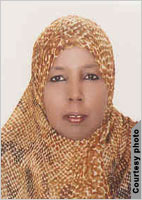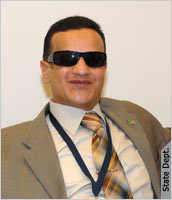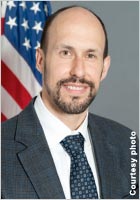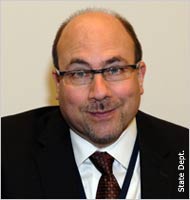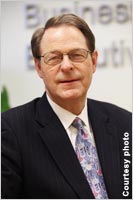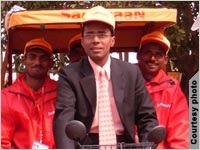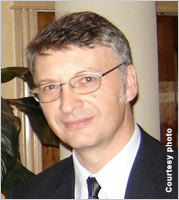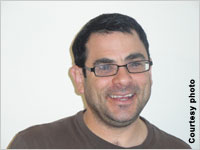
Paul Romer is a senior fellow at the Stanford Center for International Development and the Stanford Institute for Economic Policy Research. He specializes in economic development.

Ikuemonisan Banabas Ayobami
I am the first of five children, all boys. We lived on $200 per month. My high school was so bad that we were taught English in Hausa — a local dialect. However, I was blessed to have a great father. He always told me I can be all I want to be. His words helped me to become a doctor, which was a long struggle.
In my country, Nigeria, years of corruption and bad leadership caused many to lose faith in the “Nigerian dream.” But my work as a social entrepreneur facilitates young people gaining the life skills to become self-reliant, make right choices and pursue their dreams. That eventually brings economic growth and less crime.
The work I describe began five years ago, when I, with others, started the Glimmer of Hope Foundation, while I was in medical school. We had an idea but no financial muscle. People thought our dream – to help Nigerian youth to be healthy and also to empower them to succeed in life – was grandiose. But today, we talk of spending close to 10 million naira this year on youth-funded projects.
The foundation helps homeless young people, some of whom have been involved in anti-social behavior as a means of survival. In South West Nigeria, we are bringing kids, between 9 and 15 years old, who are on the streets right now, back to school. We also give them vocational training. We have to keep young people from following bad leaders.
I see young people who do not believe they can amount to anything. A few years ago, one young man told me he could never go to the university. Now he’s in his final years studying for a degree in economics.
The young people in our country are intelligent and want change. They just need a push. They need to see someone like themselves, someone who came from poverty and became something. When they do, they follow that lead.

Paul Romer
Your blog post addresses an important issue. Human capital – the skills and knowledge embodied in the workforce – is central to economic development.
Unlike those who focus on specific job skills, you recognize that human capital also consists of important character traits. For example, the right education can instill in young people a sense of possibility instead of passivity.
Social norms – each person’s learned beliefs about what is right and wrong – are also part of human capital. Social norms influence our interactions with others. If the only available role models are the bad leaders to whom you refer, young people will internalize social norms that undermine Nigeria’s prospects. Your organization provides a much-needed alternative, offering a different standard of what is normal and right.
In the pursuit of human capital and economic development, changes in social norms are driving forces, not incidental side effects. Societies can get trapped by outdated or counterproductive norms that hurt everyone.
But societies can change. In the 1970s, Hong Kong dramatically reduced corruption in its police force partly by changing social norms. The government convinced citizens that police corruption is not normal or tolerable. As a result, ordinary citizens helped fight it by reporting requests for bribes to a special hotline.
Entrepreneurial organizations like yours play a role in the diffusion of more just and socially constructive norms within existing social settings. (With my new research non-profit, Charter Cities, I hope to convince people that newly chartered cities offer complementary opportunities to establish desirable norms in new social settings. In a sense, new cities can be like startup companies that establish new cultures.)
Working from both directions – reforming existing social systems and forming new ones – we can move all nations toward rules and norms that unleash everyone’s potential instead of holding them back.

